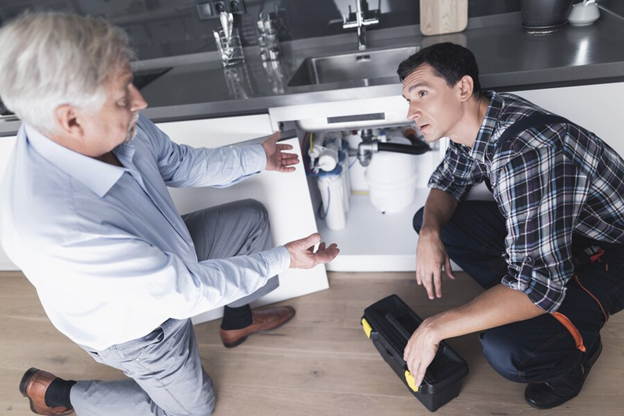Water leaks can cause significant damage to properties, especially in commercial settings. The repercussions of a leak can be extensive, from structural damage to financial losses. Therefore, understanding how to prevent and manage water leaks is crucial. This article delves into effective strategies, focusing on commercial drain cleaning and addressing broken water lines.
Understanding the Impact of Water Leaks
Water leaks are a common issue in both residential and commercial properties. They can lead to severe damage if not detected and managed promptly. For businesses, the consequences can be even more dire. Water damage can disrupt operations, lead to costly repairs, and affect the overall safety and hygiene of the premises.
Importance of Regular Maintenance
Regular maintenance is key to preventing water leaks. This includes routine inspections of plumbing systems, fixtures, and appliances. Early detection of potential issues can save significant time and money in the long run. Commercial properties should invest in regular maintenance schedules to ensure all systems are functioning correctly.
Role of Commercial Drain Cleaning
Effective commercial drain cleaning is a critical component of preventing water leaks. Over time, drains can become clogged with debris, grease, and other substances. These blockages can lead to water backups and leaks. Regular drain cleaning helps to maintain the flow of water and prevents blockages that could cause leaks.
Techniques for Effective Drain Cleaning
Effective drain cleaning involves using the right techniques and equipment. Hydro jetting is a popular method, which uses high-pressure water to clear blockages and clean the interior of pipes. Another method is drain snaking, which involves using a long, flexible auger to remove blockages. Both methods are effective in maintaining clear and functional drains.
Addressing Broken Water Lines
Broken water lines are a major cause of water leaks. These can occur due to various reasons such as aging pipes, corrosion, or external factors like construction work. Identifying and repairing broken water lines promptly is crucial to prevent extensive water damage.
Signs of Broken Water Lines
Detecting broken water lines early can prevent significant damage. Signs of a broken water line include sudden drops in water pressure, unexplained increases in water bills, damp spots on walls or floors, and unusual sounds coming from the plumbing. Regular inspections can help identify these issues before they escalate.
Steps to Repair Broken Water Lines
Repairing broken water lines involves several steps. Firstly, identify the location of the break. This might require specialized equipment like leak detection sensors. Once located, shut off the water supply to prevent further leakage. Depending on the extent of the damage, repair might involve patching the pipe or replacing the affected section. It is advisable to consult professional plumbers for such repairs to ensure they are done correctly.
Importance of Professional Assistance
While some minor leaks and clogs can be managed in-house, significant issues like broken water lines require professional assistance. Professional plumbers have the expertise and equipment to handle complex repairs and ensure the plumbing system is restored to optimal condition. They can also provide valuable advice on maintaining the system and preventing future leaks.
Preventive Measures
Prevention is always better than cure. Implementing preventive measures can significantly reduce the risk of water leaks. Insulating pipes to prevent freezing, especially in colder climates, is one such measure. Regularly checking for signs of wear and tear and replacing old pipes can also prevent leaks. Additionally, installing water leak detectors can provide early warnings of potential issues.

